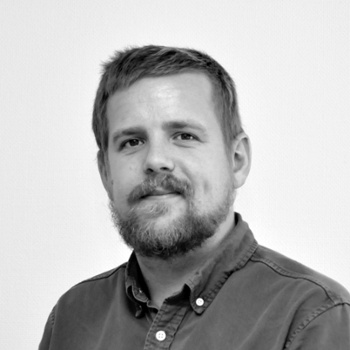LGBTQIA+ Monitor 2024: Insights into the Living Conditions and Attitudes Toward LGBTQIA+ Individuals in the Netherlands
Panteia has played a key role in the refinement of the LGBTQIA+ monitor.
This monitor, developed in collaboration with research institute Movisie and Ipsos I&O and commissioned by the Ministry of Education, Culture, and Science (OCW), provides a detailed look into the living conditions of LGBTQIA+ individuals in the Netherlands and compares them with those of cisgender heterosexual individuals. It also examines attitudes toward LGBTQIA+ people among the Dutch population. For the first time, the monitor also includes non-binary, asexual, intersex, and queer individuals. Additionally, it provides insights into the experiences of LGBTQIA+ individuals of color and/or with a non-Western migration background and LGBTQIA+ individuals with disabilities.
The monitor builds on previous editions conducted by the Social and Cultural Planning Office (SCP) in recent years, which focused on the living conditions of and attitudes toward lesbian, gay, bisexual, and transgender (LGBT) people. It is important to note that different surveys report varying results due to differences in question formats and respondent group categorization. This monitor surveyed respondents aged 18 and older.
Attitudes
“For the first time, we have mapped Dutch public attitudes toward all LGBTQIA+ groups. Acceptance varies significantly between groups,” says Karijn van den Berg, senior researcher at Movisie. “For example, we can now see that attitudes toward bi+ people are more negative than toward homosexual people. The low levels of positive attitudes toward some of these groups may be due to limited visibility or negative stereotypes.”
The monitor reveals that 86% of respondents view homosexuality (gay men and lesbian women) positively, with 82% viewing asexual individuals positively. Intersex and transgender individuals are viewed positively by 72% and 71% of respondents, respectively, followed by bi+ individuals (66%) and non-binary individuals (53%). These results highlight differences in public attitudes toward the various groups, with bi+ and non-binary individuals receiving the lowest levels of positive support.
In terms of opinions about homosexuality in a broad sense (including gay men and lesbian women), a positive trend from previous years continues. Previous SCP research indicated lower acceptance rates in past years. There also appears to be a growing acceptance of gender diversity compared to earlier surveys, although the number of people with negative attitudes toward gender diversity has also slightly increased.
Discrimination
LGBTQIA+ groups report more frequently than cis-heterosexual individuals that they consider what they do or express in public spaces—such as gender expression or showing affection to a partner. They also experience more discrimination, including discriminatory remarks, negative portrayals, and verbal harassment. Additionally, the monitor shows that all LGBTQIA+ groups experience poorer mental health than cis-hetero individuals, with all groups indicating equal or higher rates of suicidal thoughts compared to cis-hetero people. This rate is highest among non-binary individuals (75% versus 27% for cis-hetero respondents). Non-binary, queer, and bi+ individuals, asexual people, LGBTQIA+ people of color and/or with a non-Western migration background, and LGBTQIA+ individuals with disabilities also report higher rates of burnout compared to cis-hetero respondents.
Furthermore, non-binary, queer, and asexual individuals and LGBTQIA+ people with disabilities report the lowest levels of happiness.
State Secretary Mariëlle Paul (Emancipation): “When you cannot safely be yourself, it obviously affects how you feel. This report highlights that reality once again. Thankfully, some things are improving, but there is still a long way to go. That is why I will continue working hard to ensure a free and safe Netherlands, where, for example, men can walk hand in hand on the street, and lesbian women are not harassed while out. This work is, of course, a joint effort with many partners, such as local governments to enhance neighborhood safety through the Rainbow Cities program.”
Concerns
There are several areas of concern regarding the living conditions of LGBTQIA+ individuals, including the caution LGBTQIA+ people exercise when expressing their sexual and gender diversity in public, their higher rates of discrimination, and poorer mental health. Attitudes toward LGBTQIA+ groups also raise concerns, with some people viewing bi+, trans, and non-binary identities as trends, and many respondents expressing reluctance to have a relationship with trans, non-binary, bi+, asexual, or intersex individuals. Researcher Van den Berg: “This may stem from the fact that these groups are relatively new in terms of visibility, and that knowledge and recognition of these groups are not yet widespread.”
Thus, it is essential to include non-binary, asexual, intersex, and queer individuals in research. Structural attention is also needed for bi+ and trans individuals. Increasing awareness and reducing prejudice remain key areas for improvement. There is also a role for both national and local governments to explicitly include these groups in policy documents and public communications.
The LGBTQIA+ monitor will be conducted again in 2026 and 2028 by Panteia, Movisie, and Ipsos I&O.
You can download the full LGBTQIA+ Monitor 2024 (in Dutch) here.

